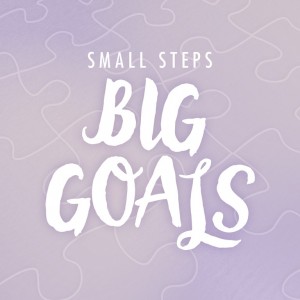 I am going to share an article with you that is reprinted with permission from Harper Collins Publishers. New York. It’s an excerpt from The Feeling Good Handbook by Burns D. (1989).
I am going to share an article with you that is reprinted with permission from Harper Collins Publishers. New York. It’s an excerpt from The Feeling Good Handbook by Burns D. (1989).
“Everything you want is on the other side of fear!” so see if you can practice “Doing it afraid”.
Patterns of Cognitive Distortions:
These are 10 common cognitive distortions that can contribute to negative emotions.
They also fuel catastrophic thinking patterns that are particularly disabling. Read these
and see if you can identify ones that are familiar to you.
1. All-or-Nothing Thinking: You see things in black-or-white categories. If a situation
falls short of perfect, you see it as a total failure. When a young woman on a diet ate a
spoonful of ice cream, she told herself, “I’ve blown my diet completely.” This thought
upset her so much that she gobbled down an entire quart of ice cream!
2. Over generalization: You see a single negative event, such as a romantic rejection or
a career reversal, as a never-ending pattern of defeat by using words such as “always” or
“never” when you think about it. A depressed salesman became terribly upset when he
noticed bird dung on the windshield of his car. He told himself, “Just my luck! Birds are
always crapping on my car!”
3. Mental Filter: You pick out a single negative detail and dwell on it exclusively, so that
your vision of all reality becomes darkened, like the drop of ink that discolors a beaker of
water. Example: You receive many positive comments about your presentation to a
group of associates at work, but one of them says something mildly critical. You obsess
about his reaction for days and ignore all the positive feedback.
4. Discounting the Positive: You reject positive experiences by insisting they “don’t
count.” If you do a good job, you may tell yourself that it wasn’t good enough or that
anyone could have done as well. Discounting the positive takes the joy out of life and
makes you feel inadequate and unrewarded.
5. Jumping to Conclusions: You interpret things negatively when there are no facts to
support your conclusion.
Mind Reading: Without checking it out, you arbitrarily conclude that someone
is reacting negatively to you.
Fortune-telling: You predict that things will turn out badly. Before a test you
may tell yourself, “I’m really going to blow it. What if I flunk?” If you’re
depressed you may tell yourself, “I’ll never get better.”
6. Magnification: You exaggerate the importance of your problems and shortcomings, or
you minimize the importance of your desirable qualities. This is also called the “binocular
trick.”
7. Emotional Reasoning: You assume that your negative emotions necessarily reflect
the way things really are: “I feel terrified about going on airplanes. It must be very
dangerous to fly.” Or “I feel guilty. I must be a rotten person.” Or “I feel angry. This proves
I’m being treated unfairly.” Or “I feel so inferior. This means I’m a second-rate person.” Or
“I feel hopeless. I must really be hopeless.
8. “Should statements”: You tell yourself that things should be the way you hoped or
expected them to be. After playing a difficult piece on the piano, a gifted pianist told
herself, “I shouldn’t have made so many mistakes.” This made her feel so disgusted that
she quit practicing for several days. “Musts,” “oughts” and “have tos” are similar
offenders.
“Should statements” that are directed against yourself lead to guilt and frustration. Should
statements that are directed against other people or the world in general lead to anger
and frustration: “He shouldn’t be so stubborn and argumentative.”
Many people try to motivate themselves with should and shouldn’ts, as if they were
delinquents who had to be punished before they could be expected to do anything. “I
shouldn’t eat that doughnut.” This usually doesn’t work because all these should and
musts make you feel rebellious and you get the urge to do just the opposite. Dr. Albert
Ellis has called this “musterbation.” I call it the “shouldy” approach to life.
9. Labeling: Labeling is an extreme form of all-or-nothing thinking. Instead of saying “I
made a mistake,” you attach a negative label to yourself: “I’m a loser.” You might also
label yourself “a fool” or “a failure” or “a jerk.” Labeling is quite irrational because you are
not the same as what you do. Human beings exist, but “fools,” “losers,” and “jerks” do not.
These labels are just useless abstractions that lead to anger, anxiety, frustration, and low
self-esteem.
You may also label others. When someone does something that rubs you the wrong way,
you may tell yourself: “He’s an S.O.B.” Then you feel that the problem is with that
person’s “character” or “essence” instead of with their thinking or behavior. You see them
as totally bad. This makes you feel hostile and hopeless about improving things and
leaves little room for constructive communication.
10. Personalization and blame: Personalization occurs when you hold yourself
personally responsible for an event that isn’t entirely under your control. When a woman
received a note that her child was having difficulties at school, she told herself, “This
shows what a bad mother I am,” instead of trying to pinpoint the cause of the problem so
that she could be helpful to her child. When another woman’s husband beat her, she told
herself, “If only I were better in bed, he wouldn’t beat me.” Personalization leads to guilt,
shame, and feelings of inadequacy.
Some people do the opposite. They blame other people or their circumstances for their
problems, and they overlook ways that they might be contributing to the problem: “The
reason my marriage is so lousy is because my spouse is totally unreasonable.” Blame
usually doesn’t work very well because other people will resent being scapegoated and
they will just toss the blame right back in your lap. It’s like the game of hot potato – no one
wants to get stuck with it.
Reframing Tips:
Explore what’s stressing you: View your situation with positive eyes.
Find what you can change: If you could, what parts of your situation would you
most like to change? With positive reframing, you may see possibilities you
weren’t aware of before.
Identify benefits: Find the benefits in the situation you face.
Discover the humor: Find the aspects of your situation that are so absurd that you
can’t help but laugh.
(The Resilience Alliance, 2011)
 Meditation is the practice of reaching a heightened level of awareness. It allows you to tune into your thoughts without being consumed by them. This makes it easier to focus on what truly matters and gives you space to quiet your mind.
Meditation is the practice of reaching a heightened level of awareness. It allows you to tune into your thoughts without being consumed by them. This makes it easier to focus on what truly matters and gives you space to quiet your mind.








